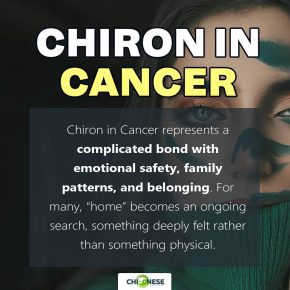Navigating healthcare can be an overwhelming experience for patients, particularly when faced with complex medical decisions. The intricacies of medical terminology, treatment options, and potential outcomes create considerable stress and confusion. Patients often find themselves in a difficult position, needing to make choices that could significantly impact their health and quality of life. In these challenging moments, patients deserve a support system that empowers them with the information and guidance necessary to make informed decisions.
The Importance of Clear Communication
Clear communication is paramount in any medical setting, but it becomes even more crucial when patients are faced with complex decisions. Healthcare professionals should prioritize clarity and transparency in their interactions with patients, ensuring they provide easily understandable information. Medical jargon can alienate and disorient patients, so the use of straightforward language is crucial.
Effective communication fosters trust, allowing patients to feel comfortable voicing their concerns and asking questions. When patients comprehend their medical conditions and treatment options, they are better equipped to make decisions that align with their values and preferences. Empowering patients through open dialogue can lead to improved outcomes, both in their understanding and in their satisfaction with the care they receive.
Educational Resources for Patients
Patients should have access to a variety of educational resources to enhance their understanding of complex medical concepts. Educational materials, such as brochures, videos, and reputable online resources, play a vital role in supplementing discussions with healthcare providers. These materials can break down intricate topics and help patients digest information at their own pace.
These resources can help patients explore different treatment options and potential side effects, ensuring they have a well-rounded view of their situation. As a patient, being proactive about gathering information can significantly aid in the decision-making process. Utilizing the support of a healthcare advocate can also be beneficial. These professionals can interpret medical information and guide patients through the steps of their healthcare journey.
The Role of Family and Friends
The influence of family and friends cannot be understated when patients face difficult medical choices. Loved ones can provide emotional support, helping patients sort through their feelings about various treatment options. Families can assist in gathering information and discussing options, creating an environment of collaborative decision-making.
Family discussions must be constructive. Sometimes, differing opinions and emotions can make the situation more challenging. Facilitating a supportive dialogue among family members can ensure that the patient feels heard while leading to better-informed joint decisions. Thus, involving loved ones should be approached with strategy, ensuring their contributions enhance the patient’s experience.
Seeking Second Opinions
In many cases, patients may feel uncertain about the recommendations of a particular healthcare provider when dealing with significant medical decisions. Seeking a second opinion can validate a patient’s concerns and provide additional perspectives on their situation. It also offers patients an opportunity to reassess their options and make informed choices that they feel confident about.
Recent surveys indicate that nearly 70 percent of patients benefit from second opinions, leading them to different treatment plans or confirming the initial recommendations. Understanding that it is perfectly acceptable to seek a second opinion can help alleviate anxiety and empower patients in their healthcare choices. This process reinforces the idea that patients should trust their instincts and prioritize their well-being above all else.
Emotional and Psychological Support
Aside from medical information, patients deserve emotional and psychological support as they navigate complex medical decisions. The stress of deciding on treatment plans can be burdensome, and addressing mental health should be part of the holistic approach to healthcare. Psychologists and therapists can provide coping strategies that empower patients to process their emotions constructively.
Support groups can offer shared experiences, allowing patients to connect with individuals who have faced similar dilemmas. Having a safe space to share these feelings can help alleviate the loneliness that often accompanies medical decisions. Incorporating emotional support into patient care can lead to better outcomes, fostering resilience and enhancing patients’ well-being during challenging times.
Advocating for Patient Rights
An often-overlooked aspect of complex medical decision-making is the importance of advocating for patient rights. Patients should feel empowered to ask questions, request clarity, and ensure their values and preferences remain central to every discussion. Healthcare providers have an ethical responsibility to respect patient autonomy, but individuals must be prepared to assert their role in the decision-making process.
Advocacy can take many forms, from working with patient rights organizations to leaning on advocates who specialize in ensuring patients’ voices are heard. When patients actively participate in advocating for their own care, they are more likely to receive treatments aligned with their goals and to feel respected throughout their medical journey.
When facing complex medical decisions, patients deserve more than just medical expertise; they deserve clear communication, access to resources, emotional support, and the freedom to make choices with confidence. With the involvement of family, the reassurance of second opinions, and strong advocacy for their rights, patients can navigate overwhelming situations with greater clarity and control. Healthcare is most effective when it treats individuals as partners in their own care, respecting their personal values and emotional well-being. By ensuring these elements are prioritized, patients are better equipped to make informed choices and maintain a sense of dignity and empowerment throughout their healthcare experiences.











